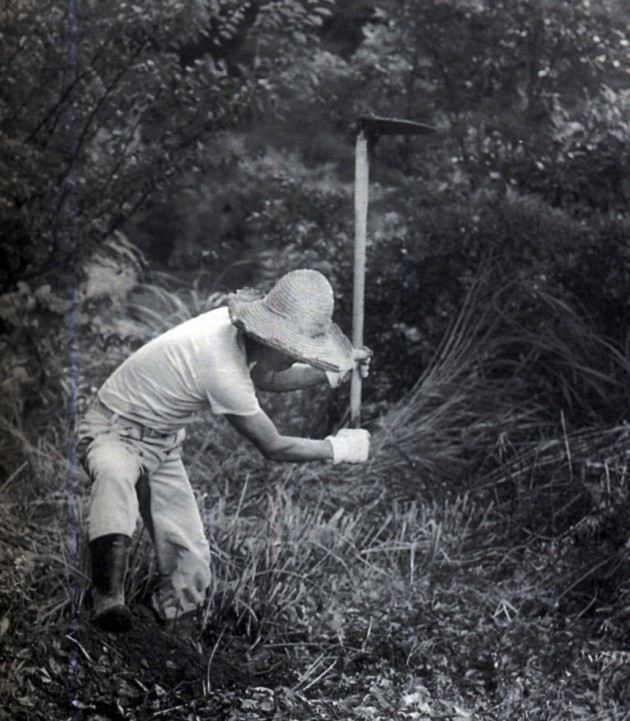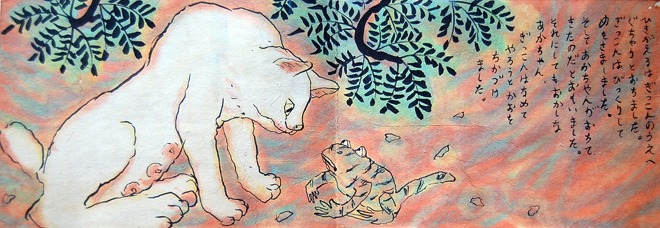
A Different Kind of Luxury: Japanese Lessons in Simple Living and Inner Abundance by Andy Couturier. Berkeley: Stone Bridge Press, 316pp., $19.95 (paper).
[I]n the middle of my unacceptably busy teaching-supervision-administration-service semester, this beautiful book by essayist, poet, and writer Andy Couturier landed on my desk. Having been warned that this was not the sort of academic tome I am usually asked to consider, I was not sure what to expect.
The cover — with pictures from the Japanese countryside and photos of some the people whose lives it examines — was aesthetically pleasing and inviting. Inside one finds the stories of eleven Japanese who have chosen lives radically outside the mainstream. Couturier explores how these individuals and couples made their choices, and how they actually live their lives.
“This book is not a blueprint for achieving ‘the good life,’ nor is it a how-to book,” the author cautions. Indeed, it could not be: no two paths pursued by these visionaries are the same. Seeking to live the good life, it seems, is a very personal journey. Each of the lives examined is an experiment, ongoing and alive.

During my years in Japan, I met people living in the countryside who were engaged in non-mainstream work. Thinking about them, and thinking about the people Couturier talks with, I saw that, for all their differences, there is common ground among them. They all share, for example, an uncompromising insistence on having time in one’s life, whether to make food, be with children, do art work, play, love, travel, meditate, study, see friends, be involved in community activism, or just to live at a reasonable pace. All seem dedicated to living lives not defined by getting and spending; to building deeper connections to land and nature; to taking food seriously by growing and preparing their own; to engaging in creative labor; and to being good citizens, connected with and active in their communities.
The histories of these eleven individuals, quite different from the traditional cram-school-university-big corporation path so common in Japan, overlap in significant ways. Almost all of them, for example, have traveled extensively. In particular, the passages to India and Nepal many of them have made seem to have been signficant; they met yogis there, or Buddhist teachers, shared meals with locals, ran out of money and worked odd jobs, or simply found, in their travels, the luxury of time for reflection, and such reflection is key. In most cases it seems that their decisions to change their lives were the product of long, slow, thought rather than sudden enlightenment. This leisurely consideration also leads them to a concern with the present. As Watanabe Atsuko — farmer-painter-mother-cook-activist-traveler-educator —explains, “I am alive today, making an experiment, trying to find the best way to live now, in the present day.”
My eleven-year old daughter asked me one evening, as she saw I was holding this book when I gave her a goodnight kiss, “Mommy, why are you taking so long to read that book?” “The author,” I replied, “took fifteen years to write the book. It would not be fair to read it quickly.” Couturier’s style — he is a poet — militates toward this sort of slow reading. His prose conveys far more than what is contained in the words. So much to be savored is left unsaid.
The book, for me, was a pleasure, but also a confrontation. After reading it, the words of Watanabe Gufu stayed with me:
It’s important to me to be someone who has time… There’s a term we have in Japanese, furyu: the characters are ‘wind’ and ‘flow.’ Someone with furyu has time to write haiku, or can appreciate flowers, and they have space in their emotions to look at the moon or the stars. They’re not too busy working or making money. Those people who don’t have furyu are not full people.
I am one of those not-full people, and as such, this book made a strong impression on me. It taught me that the good life is possible, attainable not by “opting-out,” but by “opting-in” to a growing worldwide movement founded on peace, ecology, simplicity, and non-materialism. The feelings of luxury and inner abundance contained in this book are infectious. Having read it, I feel more ready to opt in.

Image by Ito Akira